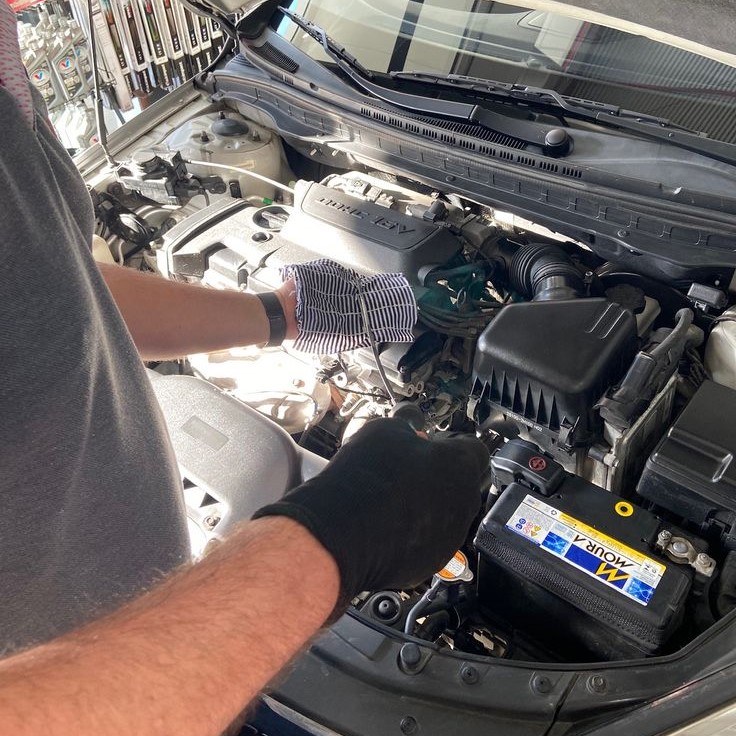Introduction to Engine Identification
Determining what engine power your vehicle is essential for maintenance and repairs. Without this knowledge, finding the right parts and diagnosing issues become much harder. Whether you’re a car enthusiast or a regular driver, engine identification is a valuable skill. What engine does my car have? It starts with knowing where and how to look for information.
Every car comes with a unique blueprint for its engine. Manufacturers provide specific codes and numbers for each model. These details are what you need for identifying your car’s engine. By mastering the process of engine identification, you’ll save time and resources. Plus, you’ll have the confidence to make informed decisions about your vehicle.
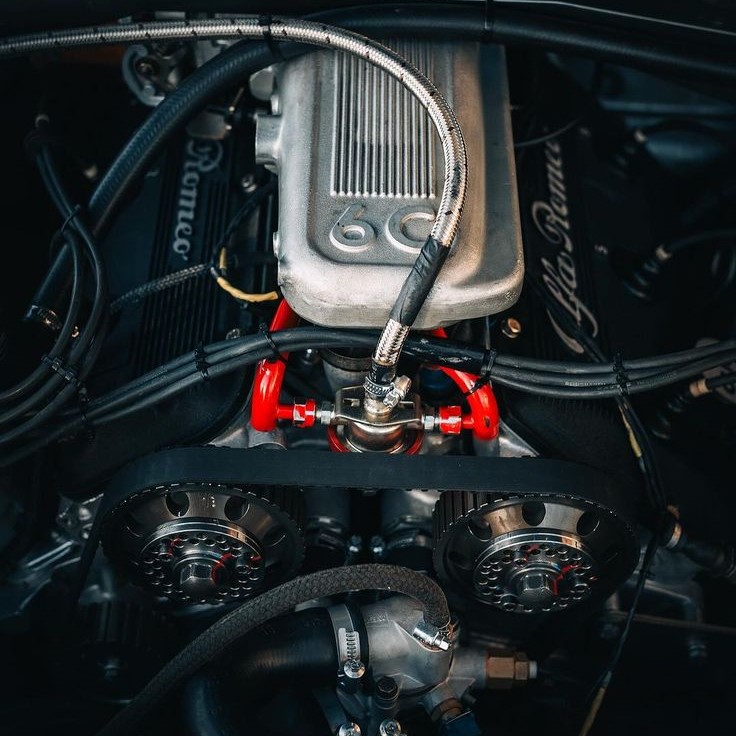
We’ll guide you through the process, starting with your Vehicle Identification Number (VIN). From there, we’ll look into engine numbers and how to decode them for your car’s make and model. Additionally, we’ll introduce online tools and databases that make the task easier. If you get stuck along the way, your owner’s manual is a great reference point. And for more complex cases, seeking help from a professional mechanic is a smart move.
Embarking on engine identification is straightforward once you understand the basics. Let’s dive into how you can pinpoint what engine your car has and how to use this knowledge effectively.
Locating Your Vehicle Identification Number (VIN)
Finding your car’s VIN is a crucial first step in engine identification. The VIN is a unique code. It acts as the DNA for your vehicle, carrying all the vital information about its make, model, and engine type. Mostly, you can find the VIN on the dashboard on the driver’s side. Look through the windshield from outside, and it’s often there. Another common location is on the driver’s side door. Open the door and check near the area where it latches.
For some vehicles, the VIN might be elsewhere. It could be under the hood, on the engine block, or the trunk. Your car’s registration papers and insurance documents also have the VIN. Make sure you note it down accurately. Writing down or taking a picture of the VIN can prevent mistakes in identification.
Once you have the VIN, keep it handy. You will need it for the next steps in identifying ‘what engine does my car have’. From here, you’re set to use this number to find out detailed engine info. The process is straightforward if you know where to look. So grab a pen and paper, or your phone, and jot down that VIN. You will use this number to unlock a wealth of information about your car’s engine.
Using the VIN to Determine Engine Information
Once you locate your car’s VIN, you’ll use it to discover what engine does my car have. The VIN is not just a random string of characters. It’s a code that holds key information about your car, including engine specs.
Here’s how you can use the VIN to find out engine details:
- Locate an Online VIN Decoder: There are many free online tools that let you input your VIN to pull detailed engine information. A simple online search for ‘VIN decoder’ will provide several options.
- Enter the VIN Carefully: Double-check the VIN you noted down to avoid errors in the decoding process.
- Decode the Information: After inputting your VIN into the decoder, it will reveal a variety of details, including the engine model, size, and type.
- Record the Engine Information: Write down the specifics or take screenshots. You may reference the decoded engine information for future maintenance or repairs.
By following these steps, you’ll have a clear understanding of your vehicle’s engine details. Armed with this knowledge, finding compatible parts and resolving issues will become much more straightforward.
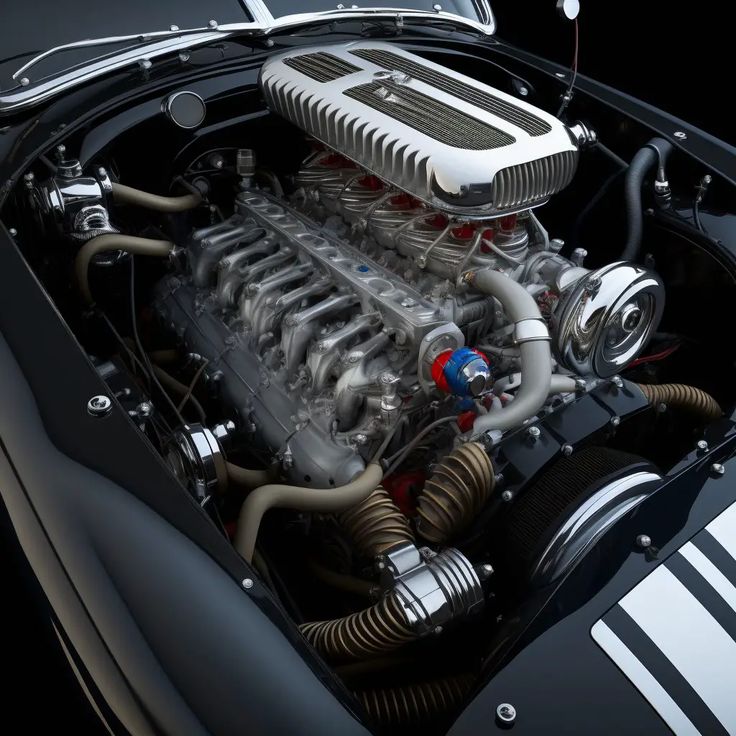
Remember, most decoders will provide information beyond just the engine. They can tell you the year your car was manufactured, the plant where it was assembled, and more. Each detail plays a role in maintaining your car’s performance and longevity. It’s worth getting familiar with these specifics so you can take full advantage of what your vehicle has to offer.
In the next sections, we’ll explore where you can locate your engine number and how to decode the unique engine codes related to your car’s make and model.
Understanding Engine Number and Where to Find It
After using your VIN to get the basic engine details, you’ll want to locate the actual engine number. This number is another key identifier for your car’s engine. It contains information specific to the engine in your vehicle. You might wonder, ‘Where do I find the engine number?’ The good news is, it’s usually stamped directly on the engine itself. To find it, you’ll need to pop the hood.
Here are some common places to look for the engine number:
- On the Engine Block: Check the engine block, which is the large metal part that makes up the main body of the engine.
- Near the Engine Mounts: Sometimes the number is close to where the engine attaches to the car’s frame.
- On a Metal Plate: In certain cars, the engine number is on a metal plate fixed to the engine.
The engine number’s location can vary based on the car’s make and model. If you struggle to find it, a quick search online with your make and model plus ‘engine number location’ can help. Your owner’s manual is also a great source to find this information.
Once you have the engine number, write it down carefully. Like the VIN, a mistake in noting the engine number can lead to confusion. Now you’re ready to move on to understanding what this number means for your specific car model.
Decoding Engine Codes for Make and Model
After locating the engine number, it’s time to decode it. This code reveals important details. It tells you exactly which engine is in your car. Every car maker has a unique system for their engine codes. Here are steps to decode the engine codes:
- Find a Reliable Source: Use a reputable online database or contact the car manufacturer’s customer service.
- Enter the Engine Code: Key in the engine number carefully to avoid mistakes.
- Interpret the Results: The database or service will share details about your engine model, make, and other specifications.
Understanding this code can be tricky. But with the right tools, it gets easier. The engine code often includes information like the manufacturing year and the engine type. This detail is vital for getting the correct parts and services.
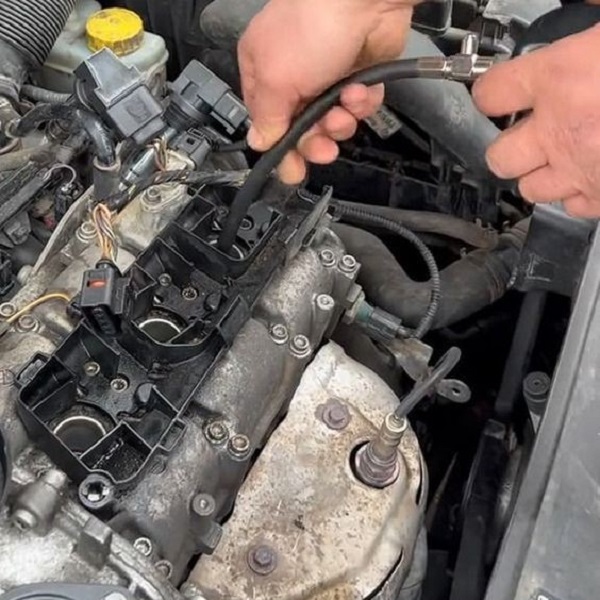
If you hit a roadblock, don’t worry. Help is available. Car enthusiasts forums and automotive experts are good resources. They can assist you in breaking down the code.
Decoding your engine’s code is the key to understanding its specifics. When you know what engine does your car have, maintaining it is simple. You can purchase the right parts and give proper care to your vehicle.
Online Resources and Databases for Engine Identification
When confirming ‘what engine does my car have’, online tools are invaluable. They offer quick and accurate information with just a few clicks. To help you through the process, several online databases and resources are at your disposal.
- Online VIN Decoders: As previously discussed, these web-based platforms require your VIN. They then provide detailed engine information and specs. Use them to understand engine specifics without hassle.
- Automaker’s Official Website: Car manufacturers often host a section for owners to check details about their models, including engine details, using the VIN or engine number.
- Vehicle-Specific Forums: Forums dedicated to specific makes or models of cars have knowledgeable members. They can help decipher engine codes.
- Automotive Parts Databases: Some databases cater specifically to parts. These can confirm the engine model and show compatible parts.
- Technical Service Bulletin (TSB) Lookup Services: They provide a database of common issues and factory notices, often linked to engine models.
Remember to verify the credibility of online tools before relying on their data. Always cross-reference information to avoid errors. Keep your VIN and engine number handy when using these resources. They are the keys to unlocking a wealth of knowledge about your vehicle’s engine.
In the next sections, we will explore how the owner’s manual can provide specific engine details, and when it’s time to seek the expertise of a professional mechanic.
Consulting the Owner’s Manual for Engine Details
If online tools leave you uncertain, the owner’s manual is your go-to resource. It’s packed with details about your car, including engine information. Here’s how you can use the manual to find out ‘what engine does my car have’:
- Grab Your Manual: Find the hard copy that came with your vehicle or download a digital version from the car manufacturer’s website.
- Check the Index or Contents: This section should guide you to the engine information page quickly.
- Look for Specific Sections: Search for sections labeled ‘Engine’, ‘Specifications’, or similar terms.
- Note Down Details: The manual typically lists engine specs like model, displacement, and power output.
- Compare With Your Engine Code: If you’ve also noted the engine code, confirm that it matches the manual’s description.
The owner’s manual is precise because it’s tailored to your vehicle’s model. It eliminates the uncertainty you might encounter with third-party sources. Refer to it when you need a reliable confirmation of your engine’s specifics. Remember, the manual is not just for engine identification. It offers comprehensive information on maintenance and troubleshooting as well.
Finding engine details in the owner’s manual is a simple task. It gives you a sense of assurance and accuracy. This direct source from the manufacturer can save time and prevent errors in identifying ‘what engine does my car have’.
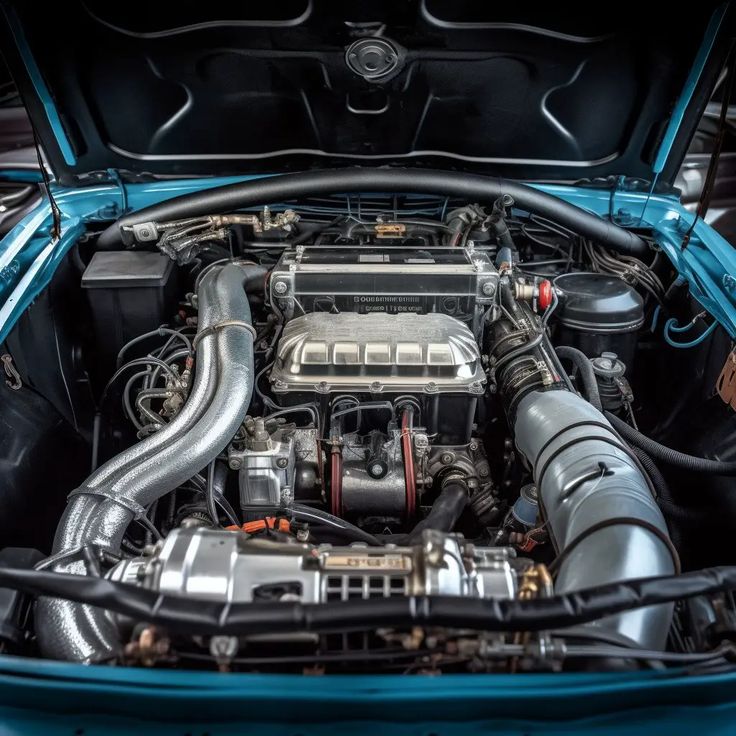
When to Consult a Professional Mechanic
While you can identify your car’s engine model using the VIN, engine number, and online tools, sometimes it’s best to turn to experts. A professional mechanic has the experience and knowledge to verify engine details. They can also help solve complex issues. Here are scenarios where consulting a mechanic is a wise choice:
Discrepancies in Information
- VIN vs. Engine Code: When the information obtained from your Vehicle Identification Number (VIN) or engine code does not match up, it can lead to confusion regarding your vehicle’s specifications.
- Mechanic’s Role: A qualified mechanic can analyze the discrepancies and provide clarification. They possess the expertise to identify whether the inconsistencies are due to manufacturing errors, previous modifications, or other factors.
- Importance of Accuracy: Understanding the correct information is crucial for proper maintenance, repairs, and insurance purposes.
Engine Modifications
- Understanding Modifications: Many car owners choose to modify their engines to enhance performance or efficiency. However, these modifications often result in engine specifications that no longer align with the factory settings.
- Mechanic Assessment: A skilled mechanic can evaluate the modified engine and determine its true configuration, helping you understand how the changes impact your vehicle’s performance and warranty.
- Impact on Maintenance: Knowing the actual specifications of your modified engine helps in making informed decisions about servicing and repairs, ensuring you get the right parts and procedures.
Aftermarket Changes
- Effect of Aftermarket Parts: Add-ons like aftermarket exhaust systems, intake systems, or turbochargers can alter the original engine specifications. These modifications may provide performance benefits but can complicate the identification of engine details.
- Expert Identification: A mechanic can accurately identify the changes made by aftermarket parts and help you understand how they affect engine performance and compatibility.
- Importance for Future Upgrades: Having a clear understanding of how aftermarket changes impact your engine allows for better planning for future upgrades and maintenance.
Unclear Engine Numbers
- Challenges with Engine Identification: In some instances, engine numbers can become worn, corroded, or obscured, making them difficult to read. This can create uncertainty when trying to identify engine specifications.
- Professional Tools: Mechanics often have specialized tools and techniques to recover and decipher unclear engine numbers. With their expertise, they can establish the correct identification for your engine.
- Avoiding Errors: Ensuring accurate engine identification through professional assistance helps avoid potential issues related to repairs, part replacements, and warranty claims.
For a Detailed Inspection
- Comprehensive Evaluation: Mechanics are equipped with the skills and knowledge to conduct thorough assessments of your engine’s health. This includes checking for performance issues, leaks, and wear and tear.
- Identifying Potential Problems: Their detailed inspections can uncover underlying issues that may not be immediately apparent, such as engine knocking, overheating, or unusual sounds.
- Importance of Regular Inspections: Regular engine evaluations by a mechanic can help in early detection of problems, potentially saving you from costly repairs in the future and ensuring your vehicle operates smoothly.
When in doubt, trust an expert. They ensure you have correct info on ‘what engine does my car have’. Making informed choices about your car’s maintenance and repairs becomes easier with their advice.
